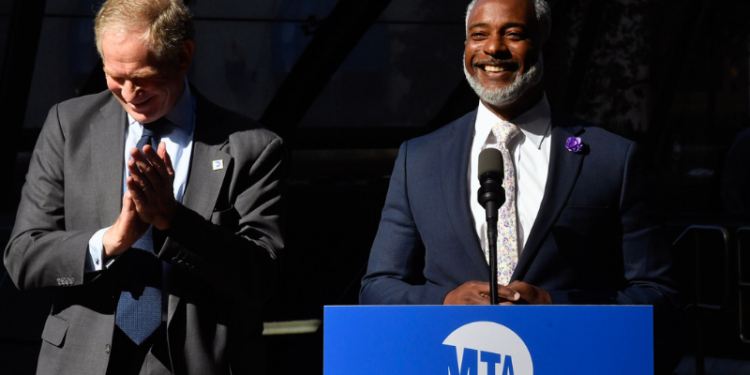Demetrius Crichlow was officially named the new president of New York City Transit (NYCT) on Wednesday, October 23rd, replacing Richard Davey, who left earlier this year. Crichlow, a 27-year veteran of the Metropolitan Transportation Authority (MTA), steps into the role during a critical period as the system faces significant budgetary and operational challenges. He is the first African-American to hold this position and has pledged to remain in the role for the long haul, aiming to provide the stability that the agency has lacked in recent years.
MTA Chair and CEO Janno Lieber, at the announcement, said, “Demetrius bleeds MTA Blue. It’s been in his family for generations.”
Crichlow’s promotion comes at a time when the MTA is facing a projected budget shortfall of $176 million for the next fiscal year. Additionally, the system is still grappling with the aftermath of the pandemic, which led to the loss of roughly one million daily riders. Fare evasion continues to be a major issue, and the much-debated congestion pricing plan remains stalled.
Governor Kathy Hochul, who previously halted the congestion pricing plan that was expected to generate significant revenue for the MTA, emphasized that the delay is temporary. She is now considering a lower congestion charge, possibly $9 instead of the initially proposed $15, to ease the financial burden on New Yorkers.
Crichlow, who began his career as a signals maintainer, acknowledged the importance of consistent leadership for the agency, noting the high turnover rate in recent years. In the last decade and a half, NYCT has had ten presidents, none of whom lasted more than three years in the role. Crichlow is determined to change this pattern and bring long-term stability to the agency.
Crichlow said, “Directions change, but the things that are important, our ability to provide service, our ability to provide a safe system, doesn’t change…and so you really need consistent leadership that is going to drive to the point where we need to be.”
He continued, “And unfortunately, when you have that much churn within a short period of time, you can lose a lot of steam in between. So I’m really happy to be able to provide the stability that the organization needs moving forward.”
Looking forward, Crichlow will need to address these financial and operational challenges head-on. The MTA’s ability to provide reliable and safe service will be essential for the city’s recovery and growth.









